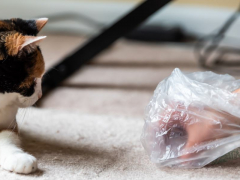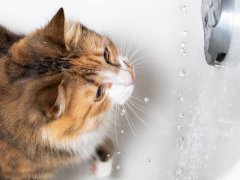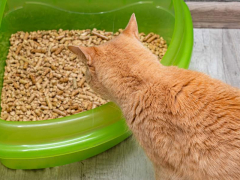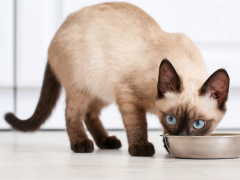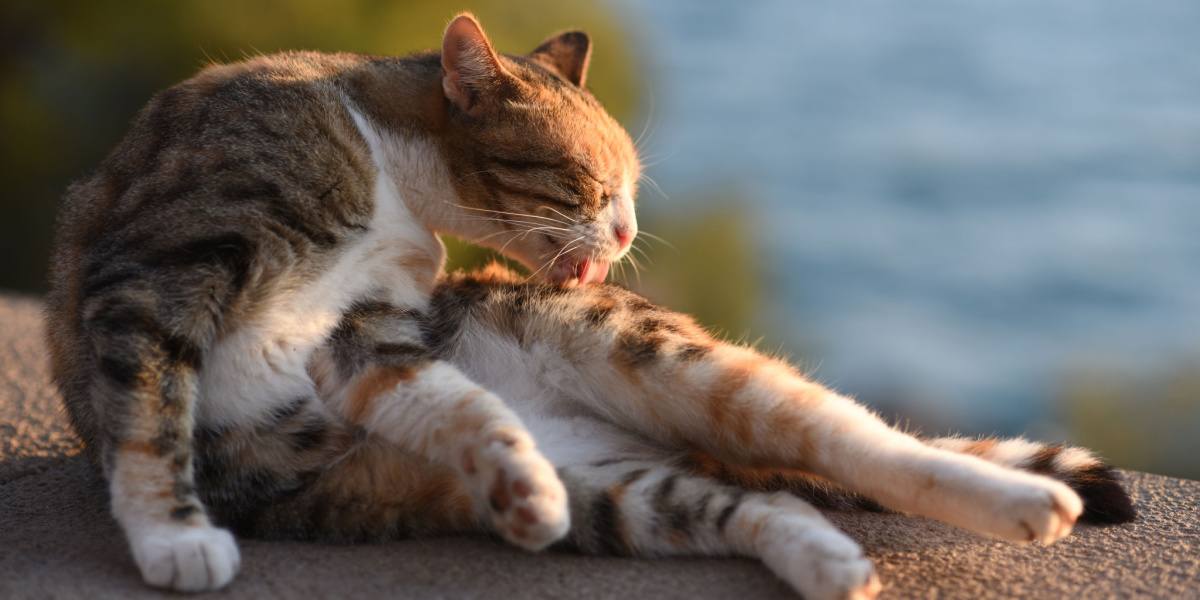
Cats are meticulously clean; in fact, they spend an average of up to half their waking hours grooming. Cats are experts at keeping their coats clean, so it can be troubling when their grooming habits change. Cats are very sensitive to the world around them, and their daily habits can change in response to stress and illness.
A reduction or complete stop in self-grooming is usually a sign that something is wrong. There can be several causes from simple behavior problems to more complex medical issues. Either way, if you’ve noticed your cat stopped grooming and their coat beginning to suffer, it’s time for a trip to the veterinarian to get them checked out.
Cats are more likely to spend time grooming just after they wake up, just before they go to sleep, or after eating. They also tend to have a good wash when they’ve been outdoors. Cats are thorough and methodical when it comes to grooming—they start with one part of their body and slowly work toward the next in a logical order.
You’ll be familiar with your own cat’s grooming habits, and you might notice your cat either not grooming in a specific area, or not grooming at all. Perhaps they started off missing a spot, but that’s now progressed to them not grooming much at all. Either way, it is a cause for concern.
Also Read: Why Do Cats Lick And Clean Themselves?
Why Do Cats Groom?
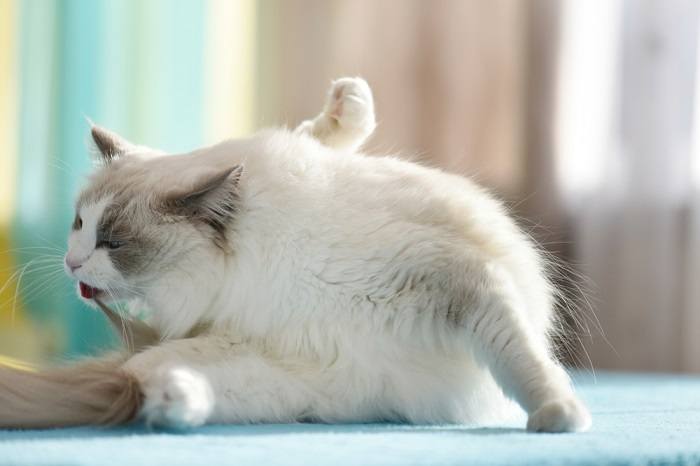
Grooming keeps your cat’s coat in good condition, and offers many other health benefits.
Cats groom to keep themselves clean and looking good, but there are some other interesting health-related reasons too. Cats groom to:
- To regulate body temperature
- To cool down via the evaporation of saliva
- To remove debris, infection, allergens, and parasites
- To prevent matting
- To stimulate circulation
- To distribute natural skin oils to keep the coat looking smooth and shiny
- To calm themselves when they feel anxious or frightened
Also Read: 11 Best Cat Brushes & Deshedding Tools For Long & Short Haired Cats
Signs Your Cat Is Not Grooming Properly
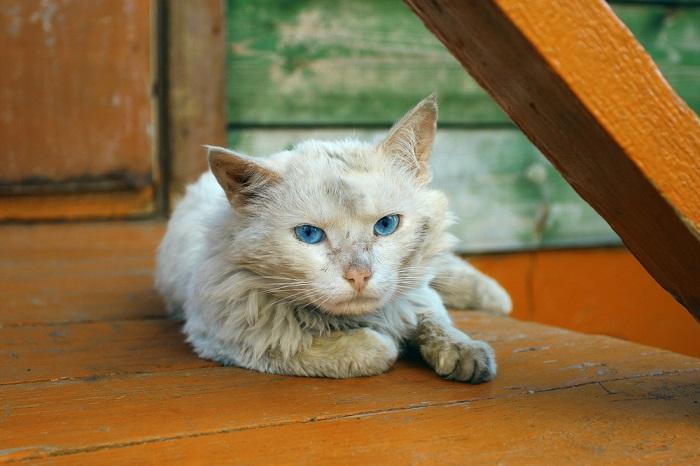
A cat that is visible dirty is definitely not grooming themself normally.
Grooming is an important behavior for our feline family members, and among their own kind, it’s a social and bonding activity, as well as a way of demonstrating which cats are superior within the group. Changes to grooming habits can signify a problem, either in the environment around them or within their own body.
Cats are very sensitive, and their behaviors and habits can change in response to stresses such as illness or external stress. It might be very obvious that your cat is not grooming properly, but it also could be subtle if they are only missing out on one bit of their body.
Watch out for these warning signs that your cat might be under-grooming:
- A harsh-looking or greasy coat
- Matted fur on the body or tail
- A foul or dirty smell
- Food on their face or chest after eating
- Excessive shedding hair or clumps of hair
- Staining on the paws from urine
Also Read: Can You Shave A Cat?
What Should I Do If My Cat Is Not Grooming Themself?
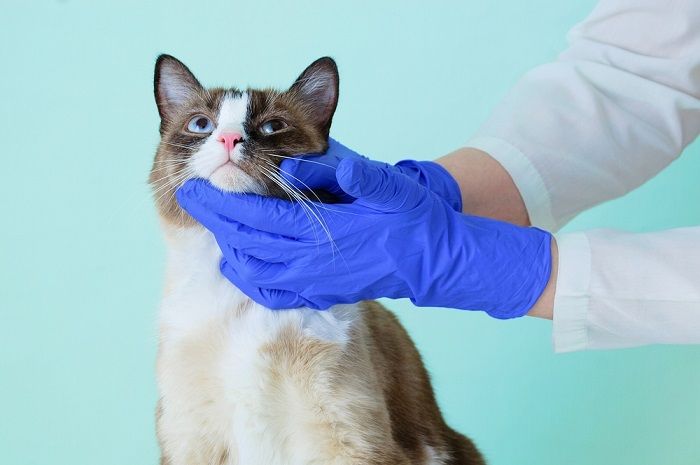
Under-grooming or not grooming at all should always be checked by a veterinarian.
If you’ve noticed any changes to your cat’s grooming habits, whether recently or over a period of time, it’s always best to make a trip to the veterinarian to get things checked out. The vet will thoroughly examine your cat, weigh them, and discuss their habits and lifestyle with you to help determine the cause of the problem, then follow a suitable line of investigation or treatment to get things back to normal.
Also Read: Cat Weight Calculator
Why Do Cats Stop Grooming?
If your cat is under-grooming, it’s important to get to the bottom of the problem and address the underlying medical issues or causes. There are several reasons why your cat might not be spending as much time grooming as usual. It might be a sign of stress or a general sign of illness. When cats feel under the weather, they can abandon their grooming habits because they simply don’t feel up to it.
1. Under-Grooming In Senior Cats
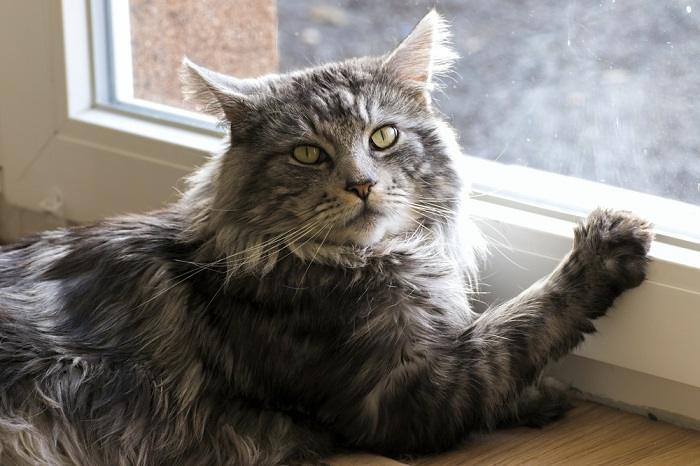
Arthritis or another painful condition might cause senior cats to stop grooming themselves.
As our feline family members age, their mobility has more limitations. They might struggle to reach certain areas to groom, and eventually stop grooming altogether. Older cats can’t bend and stretch like they could when they were young, often due to problems such as arthritis.
This makes it more difficult and uncomfortable for them to groom themselves thoroughly. With age, cats also tend to develop a disinterest in grooming.
Also Read: The 6 Best Healthy Cat Foods For Senior Cats
2. Pain

If grooming is painful, cats will stop doing it, but they might not otherwise let on that they are feeling pain.
Pain is a common and significant cause of under-grooming in cats. Under-grooming might be a silent symptom of pain, as cats are incredibly stoic and do a good job of hiding pain from us. If a particular area of their body is sore, they might not groom it to avoid discomfort, although in some cases cats can over-groom painful areas.
Pain makes it difficult for cats to bend and stretch to groom the harder-to-reach parts of their body.
Also Read: 12 Warning Signs Your Cat Is In Pain And Crying For Help
3. Obesity Or Being Overweight
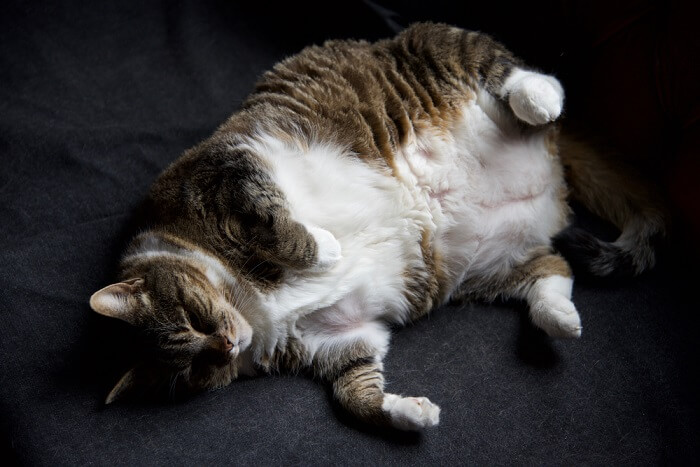
Obese cats struggle to groom hard-to-reach places like their back side.
Obesity is an increasing problem in domestic pets, and if your cat is carrying too much weight it might affect their ability to groom thoroughly. With more body weight, it might be harder for your cat to reach certain areas and restrict their ability to bend and twist the way they need to. Being overweight also increases the risk of developing painful joint diseases that further hinder their ability to groom.
Also Read: Feline Obesity – Causes, Symptoms & Treatment
4. Dental Disease
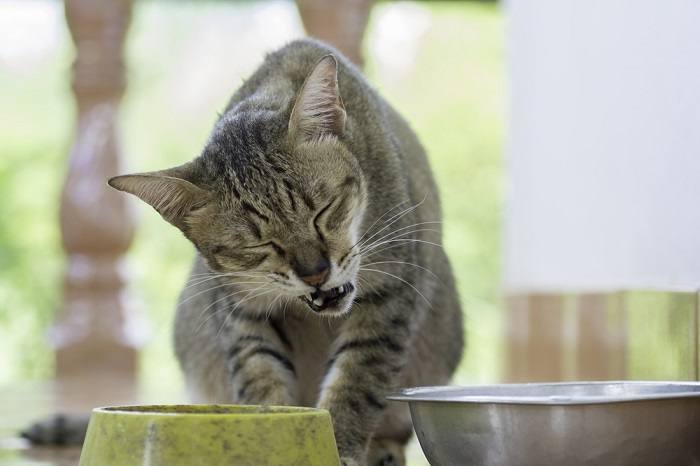
Since grooming is done with the mouth, cats might stop grooming due to painful dental or mouth conditions.
Dental or oral pain can make grooming an uncomfortable activity, so poor oral hygiene could cause your cat to stop grooming. Gingivitis, sore gums, tooth root abscesses, rotten teeth, and excessive plaque buildup can all cause discomfort in the mouth that might make grooming more challenging.
Also Read: Basepaws Cat Dental Health Test Review: We Tried It
5. Stress Or Changes To Their Environment
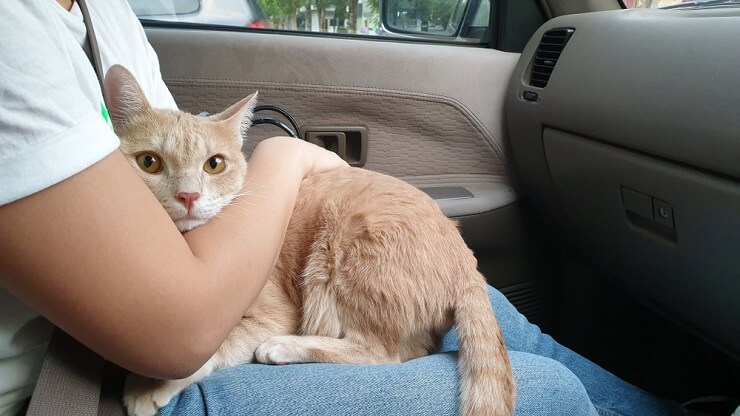
Stress can manifest as either over-grooming, under-grooming, or not grooming at all.
Stress can have a big impact on a cat’s behavior, including grooming. Any small changes in a cta’s routine or environment, such as new people and pets or moving to a new home, can trigger a change in their habits. It is more common for stress to lead to compulsive or over-grooming in cats, or a condition called psychogenic alopecia. But stress can also cause cats to abandon their grooming habits completely.
Also Read: 5 Visual Signs Of A Stressed Cat And How To Help
How To Help A Cat That Is Under-Grooming

If your cat under-grooming due to stress, work to reduce the stressors and increase your cat’s comfort.
There are lots of ways you can help and assist your cat with their grooming if they are struggling to do it by themselves. Always address any underlying medical problems and discuss your pet’s diet with your vet to ensure any weight problems or illnesses are being correctly addressed.
Dealing with stress can involve various therapies, and in some cases anti-anxiety medication. Calming supplements, pheromones, and ensuring your cat has its own safe space and plenty of toys and enrichment can all be beneficial in reducing stress.
You can encourage your cat to start grooming with regular brushing (ideally daily), especially with long-haired breeds. This stimulates blood circulation to the skin and removes excess fur and dirt. It might help to stimulate your cat to do some grooming for themselves—once they do start be sure not to disturb them.
But if they cannot groom themself much at all, brush their fur over the whole body to help keep it shiny and clean. Trimming their claws can also help, especially for senior cats that spend less time outdoors wearing them down.
Some cats will even tolerate a bath. If your cat will allow, you can use some shampoo to wash their fur, and gently dry it with a towel afterward. Always make sure you use pet shampoo, as human products can cause skin irritation. You can also gently clean your cat’s ears; your vet can guide you on how to do this and provide you with a suitable product.
Also Read: 8 Reasons You Should Never Punish Your Cat
Under-Grooming: Final Thoughts
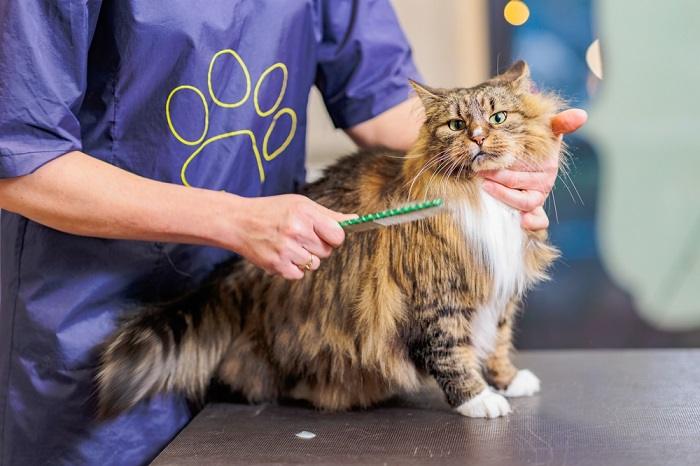
You might need to brush and comb your cat more frequently while you work to address their under-grooming.
Cats are meticulously clean and tidy creatures, and grooming is an important and social behavior for cats. Any changes in their grooming habits are a worry for cat owners, and the underlying cause should always be investigated starting with a trip to the vet. Under-grooming can involve a complete stop in grooming, or just avoiding grooming certain areas—both are a cause for concern.
Under-grooming can be caused by small stresses or changes in the environment, as well as pain, dental disease, obesity, and simply just old age. But whatever the cause, you can help your cat along by brushing and grooming them, which can also become a great bonding activity for you and your cat.
Also Read: The Complete Feeding Guide From Kittens To Seniors
